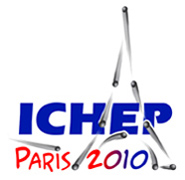Speaker
Tobias Hurth
(CERN/Mainz Univ.)
Description
We present a complete method to construct QCD-protected observables based on the exclusive 4-body B-meson decay B --> K^* l^+ l^- in the low dilepton mass region. The core of the method is the requirement that the constructed quantities should fulfil the symmetries of the angular distribution. We have identified all symmetries of the angular distribution in the limit of massless leptons and explore: a new non-trivial relation between the coefficients of the angular distribution, the possibility to fully solve the system for the K^* amplitudes, and the construction of non-trivial observables. We also present a phenomenological analysis of the new physics sensitivity of angular observables in the decay based on QCD factorisation. We further analyse the CP-conserving observables, AT2, AT3 and AT4. They are practically free of theoretical uncertainties due to the soft form factors for the full range of dilepton masses rather than just at a single point as for AFB. They also have a higher sensitivity to specific new physics scenarios compared to observables such as AFB. Moreover, we critically examine the new physics reach of CP-violating observables via a complete error analysis due to scale dependences, form factors and Lambda/m_b corrections. We have developed an ensemble method to evaluate the error on observables from Lambda/m_b corrections. Finally, we explore the experimental prospects of CP-violating observables and find that they are rather limited. Indeed, the CP-conserving (averaged) observables will offer a better sensitivity to large CP phases and may be more suitable for experimental analysis.
Author
Tobias Hurth
(CERN/Mainz Univ.)
Co-authors
Joaquim Matias
(Universitat Autonoma de Barcelona)
Ramon Ramon
(Universitat Autonoma de Barcelona)
Ulrik Egede
(Imperial College)
Will Reece
(Imperial College/CERN)
